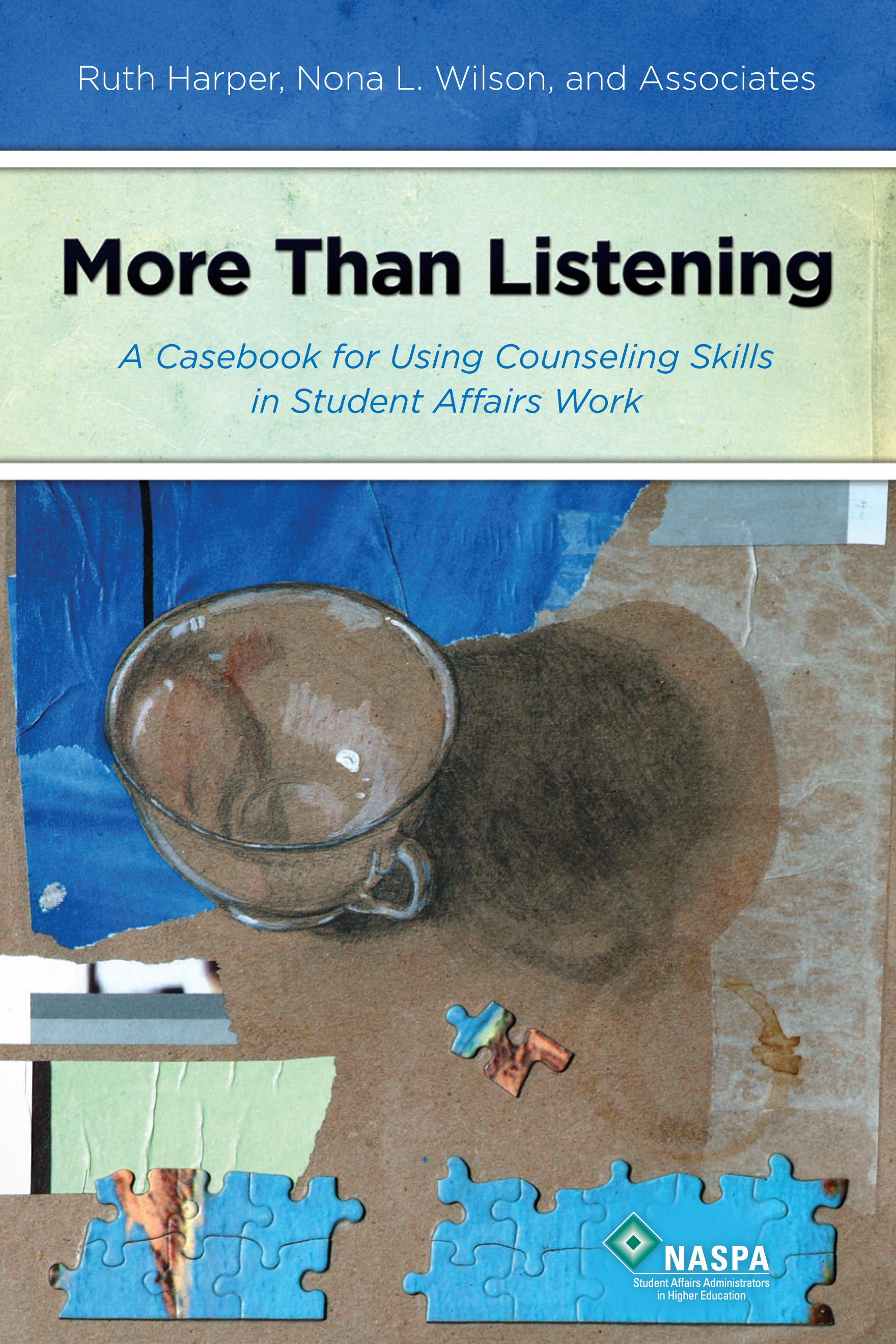
More Than Listening: A Casebook for Using Counseling Skills in Student Affairs Work
Health, Safety, and Well-being Health, Safety, and Well-being Initiatives
August 20, 2013
Helping skills are an essential component of today’s student affairs practice. On a day-to-day basis, it is student affairs professionals who often work directly with students in need of mental health support and monitoring.
More Than Listening: A Casebook for Using Counseling Skills in Student Affairs Work is written for those student affairs practitioners with limited educational or experiential backgrounds in counseling or mental health services. It provides a model for how both student development and counseling theories can inform and enhance student affairs practice. The book presents a series of case studies based on composites of situations typically handled by student affairs professionals. Each scenario is followed by two theory-based responses: one drawing on student development theories and student affairs practice; and the other grounded in counseling theory and suggesting or modeling practical helping skills.
This book illustrates how strong helping skills can augment the effectiveness of student affairs professionals in their supportive and educational roles with all students, including those with mental health concerns.
Praise for More Than Listening
“An excellent resource about counseling theories that often is not part of the student affairs practitioner’s academic background. The explanation of counseling approaches along with example conversations and language to consider in these diverse situations will be useful to student affairs professionals. The authors remind professional staff that there are times when they can play a helping role and times when a referral is the best assistance they can provide to a student.” —Mimi Benjamin, Associate Director for Faculty Programs in Residential Communities, Cornell University
“Many of the complex components of college mental health and today’s contemporary student are revealed in this important book, which intentionally supports student affairs professionals—especially those who are not psychologists or mental health counselors working in counseling centers. Student affairs staff members often make first contact with students at risk because they work with these students in residence halls, resource centers, safety programs, and advising programs. This is an important contribution to our profession, to our colleagues, and for the students we serve.” —Kevin Gaw, Director, University Career Services, Georgia State University
“The relevance of this book for anyone working in student affairs is undeniable. The authors provide a strong theoretical foundation in counseling and development, and through excellent case studies offer practical directions for the reader.” —Gregory Eells, Director, Counseling & Psychological Services, Cornell University
Paperback | 2010 | 300 pages
ISBN 978-0-931654-63-3